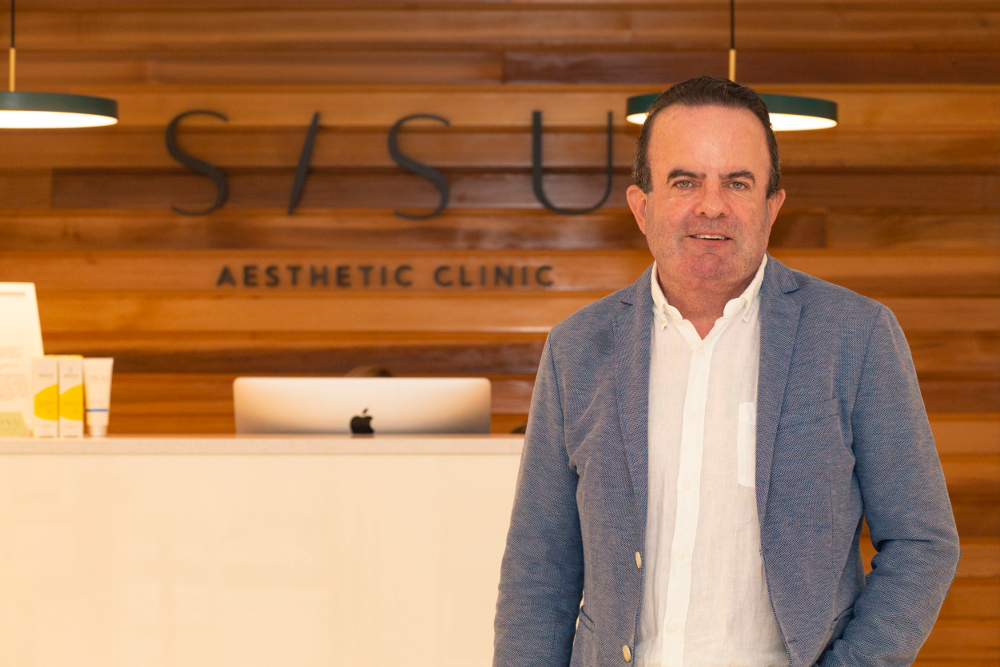Podcast Ep 98: Edtech entrepreneur Anthony Quigley is focused on his next big venture with The Corporate Governance Institute. He proves that age is no barrier to being an entrepreneur.
Anthony Quigley already had a long career in the tech industry after leaving Microsoft to become an entrepreneur. Through various failures and successes, he kept going and struck gold with the Digital Marketing Institute and Code Institute.
Now 61, he and his co-founder David W Duffy who is aged 71, have just raised €2m for their latest venture The Corporate Governance Institute and are creating 20 new jobs.
“Is there an age limit? No, I don’t think so. I’d say you’re better off starting later in life because you have the expertise, the experience the knowledge and the network”
He talks about his life in entrepreneurship and why governance and accountability matter.
Always be learning
I didn’t know Anthony Quigley during his Microsoft days, but I was certainly in the same room at the RDS when Bill Gates visited Ireland in 1995 and he was on stage to help Gates with a demo. It was a learning experience for Quigley and the parallels with his future entrepreneurial forays into digital education.
“It was a wonderful educational experience for me,” he says of his time with Microsoft. “Interacting with this global company and travelling around Europe, primarily, and other parts of the world, figuring out how to get different people to buy stuff and marketing to different audiences.”
Quigley left Microsoft just as the internet revolution descended on the world and joined an internet service provider (ISP) called Ireland Online. This was the time when ISPs used to advertise to the general public through newspapers containing CD-ROMs to get people online for the very first time.
“We had one guy ring us up and ask how he can get online. The support guy said ‘put the CD in the computer.’ And the guy goes ‘right, I’ll ring you back.’ Two hours later he rang back ‘okay, I’ve got a computer.’”
Quigley embarked on the road to entrepreneurship with his first company Net Results, which wanted to simplify how people and businesses accessed the internet at the time by bundling modems, proxy and email servers into a single box.
Within a year the company was successful and Quigley exited by selling the company. “I was a millionaire … on paper.”
This was his first harsh lesson in business as his old company now ran by the new owners flatlined within a year and Quigley’s millionaire status wasn’t worth the money it was written on. “I didn’t get good advice. I was fairly immature in that whole process of buying and selling companies and I would never do that again. Unless Microsoft wanted to buy me and swap cash for shares, but everyone else it is cash, please.”
Quigley had other problems too. A bad car accident meant he had to learn how to walk again and breathe properly. After a few years of consulting an opportunity to present an online course led to he and Ian Dodson establishing the Digital Marketing Institute.
“Somebody asked me would I deliver a course on online marketing. I was getting increasingly asked for training – how do you do email marketing, how do you use Google AdWords, how to you use Google Analytics? And all of this was just starting. From there, we were doing more and more training.
“It was clear to us that there was a demand. We looked to see if there was a Diploma or Certificate and there wasn’t. We searched the world and went ‘hold on a second, we may be on to something here.’”
In 2008 the Digital Marketing Institute (DMI) was founded by Dodson and Quigley. Within a decade they had seen rapid growth and more than 18,000 professionals in 115 countries completed its online learning programmes.
In 2017 Spectrum Equity, an investor in platforms like Lynda and SurveyMonkey, invested €26m in the Digital Marketing Institute, enabling the business to double its workforce. Spectrum became the majority shareholder while Quigley and Dodson remained minority shareholders.
The ethos of venture like DMI and the Code Institute and most recently the Quigley’s newest separate venture Corporate Governance Institute is to serve a professional and educated market that needs to continually upskill. “It is about helping professionals who already have their education to embrace continual and lifelong learning.
Always be progressing

The Corporate Governance Institute founders David W Duffy and Anthony Quigley
The sweet spot is career changers or climbers; people who have professional qualifications but want to embark on a new career or embrace new opportunities in their existing careers.
“In Ireland and the UK you go to college, get a job and if you’re lucky you might get some additional training in that job. So, what we’re doing is we’re providing that as an independent company with expertise in a particular area; previously it was in digital marketing and coding and now it is in governance.”
In the case of the Code Institute, they were able to match candidates with job opportunities in markets like Ireland, the UK, Europe and the Nordics. “We were producing a product and that product was a coder. The coder we were creating was someone who wanted to earn more than they were in their present job and the employer wanted that product as well because that product can help them develop their company.
He says the work of the Corporate Governance Institute is focused on such areas as ESG (Environmental, Social and Governance) and more.
Despite the relatively quick success of Digital Marketing Institute within several years – it had built up a good turnover and grown to 70 employees –and the opportunity to take on the investment from Spectrum Equity came at the right time for Dodson and Quigley.
“It was a hard choice, but it was also a choice that allowed us both to relax, breathe for a while and say ‘well actually, you know what, we can now do other things that will bring us different joys and give other people jobs.’ Today there are more than 100 people at DMI and the Code Institute and we’ve around 16 or 17 at the Corporate Governance Institute. So, there’s lots of positivity that comes out of moving on letting something go.”
Quigley’s new venture with Duffy, the Corporate Governance Institute, provides education and certification for board members. Along with the fully accredited Diploma in Corporate Governance, the Institute is now the leader in director certification, developing courses in key boardroom topics, such as environmental, social and governance (ESG); digital transformation; cybersecurity; and company secretary. The certifications are particularly applicable to regulated sectors such as financial services, pharma and healthcare.
He believes it is time for board responsibilities and capabilities to be given a fresh appraisal. “Decisions that board members make affect companies, their staff and the way the staff interacts with the community, their families and therefore the environment and their country. This is top-down stuff. My business partner David is an expert in the world of corporate governance. I’m an expert in the world of scaling an education business. He came to me during the pandemic and we met a year later.
“I hadn’t met anybody for a year and then I met David for an hour because we were doing some filming. And then I met David and the rest of the staff about four months later. So we were born in the pandemic. We founded this whole thing virtually. We do have an office, but everybody works from home.
“We thought about this from the top down and then layered on that expertise, professionalism, understanding of governance and the impact of that decision-making at the top level. Our research showed us that only about half a percent of all directors globally are certified.
“So most people are not qualified to sit on a board and in many ways it is seen as male, stale, white and frail – people who look like me and David in fact,” he laughs. “I’m 61 and my business partner David is 71; we have the advantage of experience, but often they look like us and that’s not right. So there’s a huge push towards diversity and inclusion, ESG, climate and employees coming through are looking for these attributes in a company to come to the fore and are making decisions around who they’re going to work for based on whether the company has a good reputation and its take on things like ESG. If a board member of a company makes a shockingly bad decision and it’s all over the Financial Times, there’s another good reason why people should come to us.
“So, we are a digital-first, digital-everything business.”
Quigley said the core customer of the Corporate Governance Institute would be existing or aspiring company directors. “It’s people on the boards, reporting to boards or just bubbling under the surface. The age profile is very different from the Code Institute and DMI in that the typical ages of a board member is in their 40s or 50s. But there are more and more people who are looking at this earlier as they move up their careers, thinking to themselves ‘what’s a non-executive director and how do I become one?’
“It’s also about mindset. Do you have a mindset for questioning and challenging what’s going on? Quite often that doesn’t happen at board meetings; sometimes businesses aren’t challenged enough.”
He describes Corporate Governance Institute as much a content business as it is an edtech company. Early customers in the UK and the Middle East include universities that are going to embed its content into their MBA courses.
“We’re an education business, but we’re also a for-profit business.”
Quigley and Duffy’s new venture flies in the face of the tired Silicon Valley narrative that all founders have to be just out of college and he does not believe there is an age limit on entrepreneurship.
“I don’t have the same energy as a 22-year-old, that’s just the unfortunate nature of ageing. But I am much, much smarter about how I go about this business. When I was 22 I was probably working 14 hour days or more. But now I don’t need to do that because I’ve figured out how to optimise and be smart about working.
“So is there an age limit? No, I don’t think so. I’d say you’re better off starting later in life because you have the expertise, the experience the knowledge and the network.”





